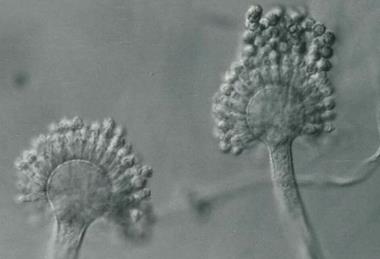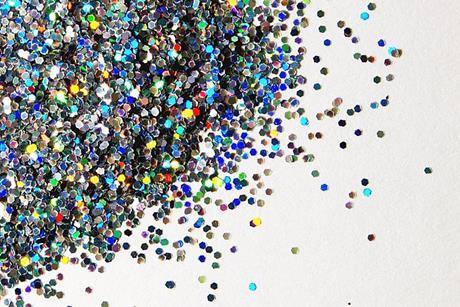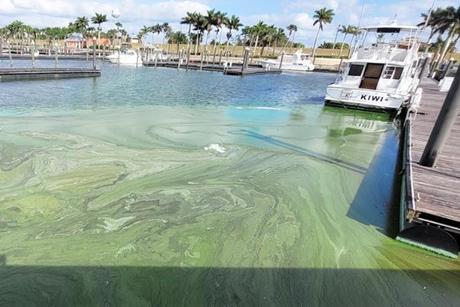Applied Microbiology International launches drive to recruit new Editors
Applied Microbiology International has just launched a recruitment drive for editors for two of its most prestigious scientiific journals, the Journal of Applied Microbiology and Letters in Applied Microbiology.
- Previous
- Next
The growing threat of nontuberculous mycobacteria infections
Once overlooked, NTM are now drawing increased attention as their infections pose significant and complex diagnostic challenges. Advances in diagnostic technologies offer the potential to overcome these hurdles to enable precise species-level detection, guide targeted therapy.
Read storyClimate, conflict, and antimicrobial resistance: unravelling the threat to global health
Emerging evidence is revealing the interplay between AMR and climate change. How are they linked, and how can we address the challenge?
Black gold, blue coke, green solutions?
The world needs clean water, and a growing population both raises that demand and constrains the supply. Thankfully, many sanitation technologies have emerged over the past few years, offering new ways to get safe sources of drinking or pharmaceutical-grade water. However, high-tech solutions are not always ideal.
What is eating my rocks? A possible novel biological niche inside limestone
“It seems something biological has once lived inside rocks in Namibia.” Read the story of this unusual discovery…
Get unlimited access to The Microbiologist
The Microbiologist provides detailed information on the latest research, topics, reviews, events and news on a wide variety of microbiological topics.
Members of Applied Microbiology International get unlimited access as a benefit. Find out more about AMI Membership

Diet, microbiome, and health: epiphenomenon or causal connection?
The gut microbiome is considered a key determinant in human health. Yet, as attention and claims have grown, so has the gap between evidence and interpretation. How much does diet really influence the microbiome?
It’s game over for dangerous Gain of Function research
The Trump adminstration has signed an Executive Order halting federal gain of function research on microbes - but does it throw the baby out with the bathwater? Virologist Simon Wain-Hobson, Emeritus Professor with the Pasteur Institute, Paris, gives his take.
The problem of microplastics in the oceans: it’s time for effective solutions
Francielly Bruna Neto Francisco and Ricardo Henrique Krüger, from the University of Brasília (UNB), warn that we urgently need technologies that will effectively eliminate partially or nonbiodegradable polymers from the marine environment.
Meet the Global Ambassadors: our Q&A with Arsalan Zaidi
The Microbiologist gets to know our new Global Ambassador for Pakistan, Dr Arsalan Zaidi, who is Principal Scientist at the National Institute for Biotechnology and Genetic Engineering.
AMI prizewinner Raquel Peixoto reveals how coral symbionts are key to tolerating rising temperatures
Marking World Coral Reef Day on June 1, AMI’s Rachel Carson Prize winner Professor Raquel Peixoto reveals how the ability of corals to tolerate rising temperatures is determined by the type of microorganisms that live inside them.
How structural imaging is revolutionising vaccines
Dr. Peijun Zhang, Director of the Electron Bio-Imaging Centre (eBIC) at the UK’s national synchrotron facility Diamond Light Source, reveals how Cryo-ET is powering some of the most important advances in vaccine research.
Urgent need to quantify role of fungal toxins in rising liver cancer rates in Ghana
There’s an urgent need to quantify the role of aflatoxins, found on agricultural crops, such as maize and peanuts, in the escalating rates of liver cancer in Ghana, as well as elsewhere in Africa and Asia, concludes a commentary.
People with COVID-like symptoms took up to nine months post-infection to regain mental well-being
New research finds that people with COVID-like symptoms returned to optimal physical well-being an average of three months after infection, but took up to nine months to return to top mental well-being.
WHO announces that mpox remains a public health emergency of international concern
WHO Director-General Dr Tedros Adhanom Ghebreyesus has announced that the mpox upsurge continues to meet the criteria of a public health emergency of international concern (PHEIC) set forth in the International Health Regulations (IHR).
Food security
Urgent need to quantify role of fungal toxins in rising liver cancer rates in Ghana
There’s an urgent need to quantify the role of aflatoxins, found on agricultural crops, such as maize and peanuts, in the escalating rates of liver cancer in Ghana, as well as elsewhere in Africa and Asia, concludes a commentary.
Clean Water
Scientists discover 230 new giant viruses that shape ocean life and health
Using high-performance computing methods, researchers have identified 230 novel giant viruses in publicly available marine metagenomic datasets and characterized their functions.
Fish ‘beauty salons’ offer insight into how microbes move within reefs
A new study highlights the potential impact of cleaner fish in coral reefs and the need to demystify their role in shaping reef microbial diversity and transmission.





































